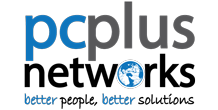BYOD, or “bring your own device,” is one of the fastest-growing trends for all businesses. With almost all applications moving to the cloud, it’s no longer necessary to have a traditional network with laptops and PC connected. But is it a GOOD idea to give employees that freedom? Here are some pros and cons about employees using their own laptops, tablets, and smartphones for work.
The pros of BYOD
• You save money because you no longer have to purchase new hardware when you hire someone.
• Your employees will be using devices they’re comfortable using, which often makes them more productive and less frustrated when working.
• If the equipment malfunctions, the employee bears the responsibility and cost of repair. However, some employees may expect you to pay for this since they are using it for work purposes as well.
The cons of BYOD
• What if that employees leaves? Since they own the device, they may have confi dential information stored on it. How can you extract and/or erase that if you won’t have ownership of the device?
• How do you ensure security? This is the biggest downside and needs to be carefully considered. What happens when your salesperson’s six-year-old downloads a virus? What if your accounts-payable person loses their device at Starbucks? What if they’re using their device to use fi le-sharing sites that are riddled with viruses? If you’re a publicly held USA corporation, you’re governed by the federal Sarbanes-Oxley Act (SOX). The Act is designed to protect against fraud by creating verifi able security controls to protect against disclosure of confi dential data, and tracking of personnel to detect data tampering. If your business accepts credit card payments, you need to be compliant with the 12 regulations of the Payment Card Industry Data Security Standard (PCI DSS). If you’re in or you support the healthcare industry, the Health Insurance Portability and Accountability Act demands that all HIPAA-covered businesses prevent unauthorized access to “Protected Health Information” or PHI (patients’ names, addresses, and all information pertaining to patients’ health and payment records).
In our opinion, we don’t recommend mixing personal and work devices because it invites too many security and privacy issues. With viruses and online threats at an all-time high, you need to lock down and protect your company “environment” as much as possible by issuing company-owned devices, laptops and computers that are monitored and properly secured, backed up and protected.



